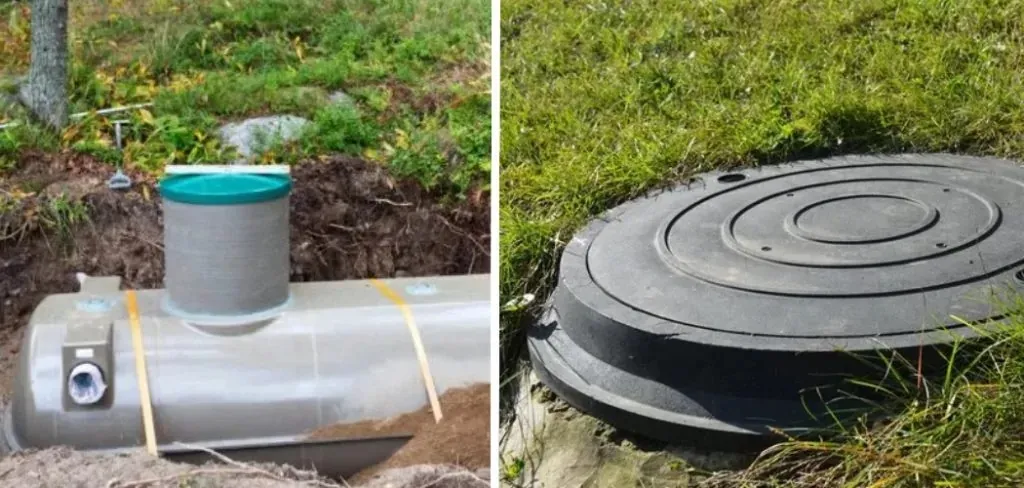Septic systems are a common wastewater disposal method in rural and suburban areas, offering homeowners an effective way to manage their household sewage. However, when these systems are neglected, they can have significant environmental repercussions. Neglected septic tank pumping is a critical issue that can lead to pollution, contamination of water sources, and harm to ecosystems. In this article, we will explore the environmental impact of failing to regularly pump your septic tank, highlighting the importance of responsible maintenance and the preservation of our natural surroundings.
The Role of a Septic System in Wastewater Treatment
Before discussing the environmental impact of neglected septic tank pumping, it’s essential to understand the role of a septic system in treating wastewater. A septic system consists of several components, with the septic tank being a crucial element.
Here’s how a septic system works:
- Wastewater Collection: All wastewater from your home, including from toilets, sinks, showers, and laundry, flows into the septic tank.
- Separation: Inside the septic tank, solids settle at the bottom to form a layer of sludge, while lighter materials like oils and fats rise to the top, creating a layer of scum. In the middle, treated effluent remains.
- Biological Treatment: Beneficial bacteria in the septic tank break down the organic matter in the wastewater, converting it into simpler compounds. This biological treatment is essential for effective wastewater purification.
- Effluent Discharge: The treated effluent, which is relatively clear and free of solids, exits the septic tank and flows into the drain field. There, it undergoes further natural purification before re-entering the environment.
The Consequences of Neglected Septic Tank Pumping
When a septic tank is not pumped regularly, several problems can arise, each of which can have a significant environmental impact:
1. Reduced Treatment Efficiency
As the septic tank accumulates sludge and scum over time, its capacity for wastewater diminishes. This results in less effective separation and treatment of solids, potentially allowing untreated or poorly treated effluent to flow into the drain field.
2. Contamination of Water Sources
Neglected septic tanks can lead to the contamination of groundwater, surface water, and nearby wells. When the treated effluent entering the drain field is not adequately treated, it can carry harmful pathogens and pollutants that pose health risks to humans and wildlife.
3. Harm to Ecosystems
Untreated or partially treated wastewater can harm local ecosystems. Nutrient-rich effluent can lead to the overgrowth of algae and aquatic plants in nearby bodies of water, disrupting the natural balance and harming aquatic life.
4. Soil Pollution
When the drain field receives poorly treated effluent due to a neglected septic tank, it can lead to soil pollution. This can result in the degradation of soil quality, making it less suitable for agriculture or plant growth.
5. Foul Odors and Aesthetic Impact
Neglected septic tanks can release foul odors and unsightly sewage backups on your property. These issues not only negatively impact your quality of life but can also harm the environment by discouraging outdoor activities and affecting property values.
The Environmental Impact of Untreated Sewage
Perhaps the most significant environmental impact of neglected septic tank pumping is the release of untreated or poorly treated sewage into the environment. Untreated sewage carries a range of harmful contaminants, including:
- Pathogens: Bacteria, viruses, and parasites present in sewage can pose serious health risks to humans and wildlife when they enter water bodies.
- Nutrients: Nutrients like nitrogen and phosphorus in sewage can lead to water pollution, causing excessive algae growth in rivers, lakes, and coastal areas. This phenomenon, known as eutrophication, depletes oxygen levels in the water and harms aquatic life.
- Chemicals: Household chemicals, pharmaceuticals, and personal care products can also be present in sewage. When these substances enter water bodies, they can have adverse effects on aquatic ecosystems.
The Importance of Responsible Septic System Maintenance
Responsible septic system maintenance, including regular septic tank pumping, is essential to minimize the environmental impact of these systems. Here’s why:
1. Protecting Water Sources
Regular septic tank pumping ensures that treated effluent entering the drain field is free of solids and pollutants. This helps protect groundwater, nearby wells, and surface water bodies from contamination.
2. Preserving Ecosystems
Properly treated wastewater from septic systems has a minimal impact on local ecosystems. By maintaining your septic system, you contribute to the preservation of natural habitats and aquatic environments.
3. Preventing Soil Pollution
A well-maintained septic system prevents soil pollution, preserving soil quality for agriculture and maintaining healthy plant life.
4. Reducing Nutrient Pollution
Regular pumping and maintenance reduce the risk of nutrient pollution, which can lead to harmful algae blooms and the degradation of aquatic ecosystems.
5. Minimizing Aesthetic Impact
A well-maintained septic system eliminates foul odors and sewage backups, creating a more pleasant outdoor environment and preserving property values.
Conclusion
Neglected septic tank pumping can have severe environmental consequences, from water pollution and contamination of water sources to harm to ecosystems and soil pollution. Responsible septic system maintenance is not only essential for preserving the environment but also for protecting human health and property values.
If you own a septic system, make it a priority to schedule regular septic tank pumping and inspections. Consult with professionals who can assess your system’s condition and recommend appropriate pumping intervals. By taking these proactive steps, you can play a crucial role in minimizing the environmental impact of septic systems and ensuring the health and well-being of your community and the natural surroundings.


